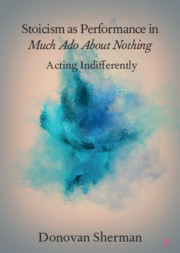Element contents
Stoicism as Performance in Much Ado about Nothing
Published online by Cambridge University Press: 05 August 2019
Summary
- Type
- Element
- Information
- Online ISBN: 9781108751797Publisher: Cambridge University PressPrint publication: 22 August 2019
References
- 1
- Cited by



